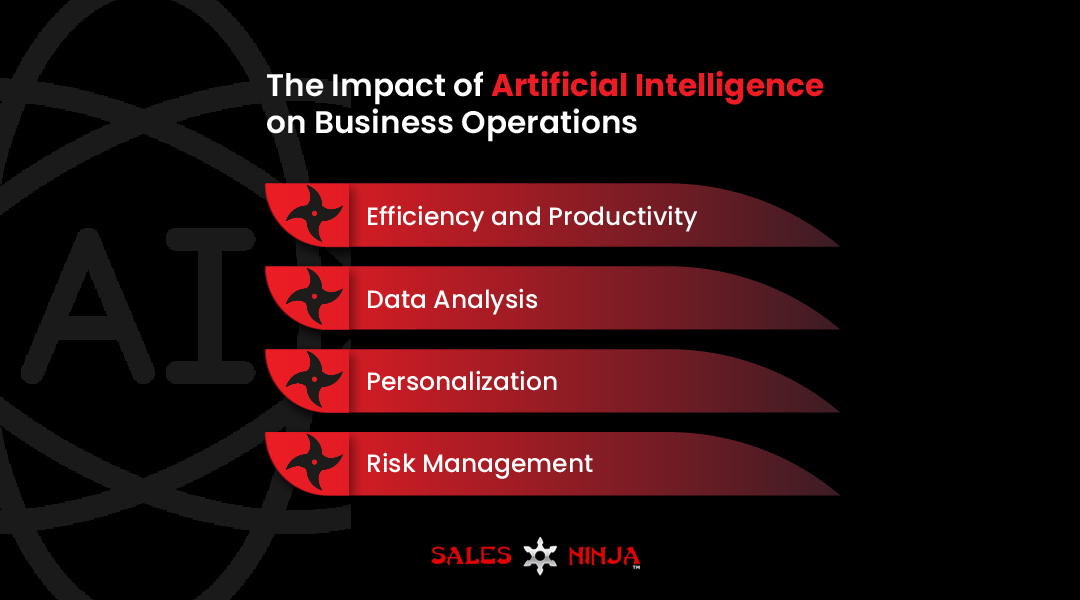The Impact of Artificial Intelligence on Business Operations:
Efficiency and Productivity: AI can automate repetitive tasks, freeing up time for employees to focus on more complex, value-added tasks. This increases efficiency and productivity. For example, AI chatbots can handle basic customer inquiries, while human agents tackle more complex issues.

Data Analysis: AI has revolutionized the way businesses handle data. Machine learning algorithms can analyze vast amounts of data to uncover trends and insights that would be impossible for humans to identify manually. These insights can inform decision-making and strategy across all areas of the business, from marketing to product development.
Personalization: AI can help businesses offer personalized experiences to their customers. By analyzing customer data, AI can predict customer preferences and behaviors, enabling businesses to tailor their offerings and communications to individual customers. This can increase customer satisfaction and loyalty.
Risk Management: AI can help businesses identify and manage risks more effectively. For example, AI can be used to detect fraudulent activity in real-time, or to predict equipment failures before they happen, allowing businesses to take preventative action.
How to Implement AI in Business Operations
Identify Opportunities:
Start by identifying tasks and processes that could be automated or improved with AI. This could be anything from customer service to inventory management.
Select the Right Tools and Partners: There are many AI tools and platforms available, each with its strengths and weaknesses. It’s important to select the right one for your specific needs. You may also need to partner with AI specialists, especially if you’re implementing AI on a large scale or developing custom solutions.
Prepare Your Data: AI relies on data to function effectively. Ensure you have enough high-quality, relevant data to feed into your AI systems. You may need to improve your data collection and management practices.
Training and Change Management: Implementing AI will likely require changes to workflows and roles. Ensure your employees are trained and prepared for these changes. Communicate clearly about the benefits of AI and how it will affect their work.
Monitor and Optimize: Once your AI systems are in place, monitor their performance and make adjustments as needed. Continual learning and optimization are key to maximizing the benefits of AI.
In conclusion, AI can have a profound impact on business operations, offering the potential to increase efficiency, improve decision-making, personalize customer experiences, and manage risk. However, implementing AI requires careful planning, the right tools and partners, high-quality data, and effective change management.
If you found this article useful, why not consider enrolling in the ChatGPT Mastery Course next?
Sales Ninja proudly presents to you the transformative ‘ChatGPT Mastery Course: Change your sales game with ChatGPT’ designed to empower you with the knowledge and skills to leverage ChatGPT in ways that will take your sales efforts to new heights. Don’t miss this opportunity to upskill and transform your sales approach. Enroll in the Course here https://salesninja.asia/chatgpt-mastery/ and join us in this immersive program and unlock your full potential in the world of sales. Get ready to change the game and achieve remarkable results like never before!




